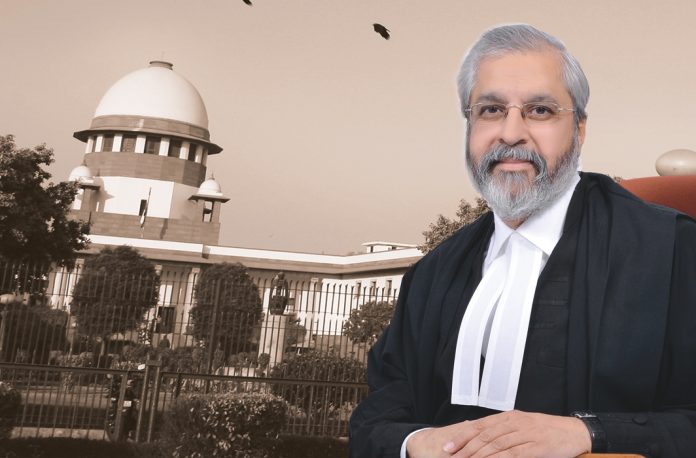Former Supreme Court judge Justice Madan B Lokur has expressed serious concerns over the rising interference of Executive in the judges’ selection process.
Speaking during a lecture event organised by ‘The Global Jurist’ in Delhi on Wednesday, Justice Lokur said the appointment process must remain with the Collegium. It it went into the hands of the executive, it could lead to a lot of mischief, such as changing the seniority of persons.
As per the former Apex Court, this was exactly what was currently happening. Outstanding advocates, who should have been appointed without any difficulty, were not being appointed.
He stressed on the need to make the process less opaque ans more transparent, not just from the Collegium side, but from the Central government’s side also.
The former top court judge sought answers from the government on certain questions, such as why the government was keeping some names pending, why was it not appointing some outstanding lawyers, and why were certain names sent back to the Collegium.
He mentioned a few names, such as Senior Advocate Saurabh Kirpal, who was yet to be appointed by the Government despite the Supreme Court Collegium reiterating his name way back in January 2023. His name was recommended by the Delhi High Court in 2017 and approved for the first time by the Supreme Court Collegium in 2021, noted Justice Lokur.
He also cited the example of Advocate Shwetasree Majumdar of the Delhi High Court, who withdrew her consent for judgeship due to the delay by the Centre in appointing her. Everybody said she was an outstanding advocate, fit to be a judge. But even after all formalities being over, she was not appointed as a judge, resulting in her withdrawing her consent. Similar was the case of Akil Kureshi, who should have made it to the SC, but was bypassed, for reasons not having to do with his merit but for some cases he decided in the Gujarat High Court, added the former Apex Court judge.
Senior Advocate Aditya Sondhi and Advocate Rajesh Datar also withdrew their consent due to the Centre’s delay. In the case of Advocate Datar, the persons who were junior to him in the same list were appointed, noted Justice Lokur.
He noted that although the Memorandum of Procedure for judicial appointments was finalised during the time when Justice Khehar was the Chief Justice of India in consultation with the Government of India, it has not been implemented so far.
Citing the recent transfer of 21 High Court judges, he said nobody knew why these judges were transferred. Whether these were punitive transfers or not. The only answer given was that it was done for the better administration of justice. If something was wrong with the judges, it would have been better that they left the justice system rather than going to some other High Courts.
Regarding the post-retirement appointments, he said a former Chief Justice of India was apparently rewarded with a Rajya Sabha seat. Another judge was rewarded with Governorship of one state. A third judge was rewarded with the Governorship of another State. Certain retired judges joined politics. A sitting judge resigned to join politics and actually got elected.
Stressing on the need to control desires for post-retirement appointments, he quoted the famous statement of former Union Minister Arun Jaitley that pre-retirement judgements were influenced by post-retirement offers.
These things need to be discussed and there was no better place to discuss it than the Bar, he added.
Justice Lokur further spoke about the quality of judges being appointed and conduct of the judges on the bench. He referred to the order passed by the Supreme Court recently rebuking an Allahabad High Court judge for allowing the conversion of a civil dispute into a criminal matter by saying that civil remedies are time-consuming. The Supreme Court said it was an extremely sad day that this had happened, he noted.
Justice Lokur highlighted that for the first time in the history of India, impeachment motions were pending in the Parliament against two High Court judges. Though he did not name the judges, he was referring to the cases of Justice Yashwant Varma and Justice Shekhar Kumar Yadav.
It was important to keep a check on the quality of judges being appointed to ensure that such incidents were not repeated in future.
The lecture on the topic “Morality in Judiciary : A Paradigm or Paradox’ was delivered by Justice Abhay S Oka, former Supreme Court judge. The event was presided over by Justice Kailash Gambhir, former Judge of the Delhi High Court. Attorney General R Venkataramani and Justice Vijender Jain, former judge of the Punjab and Haryana High Court, also spoke at the event.


